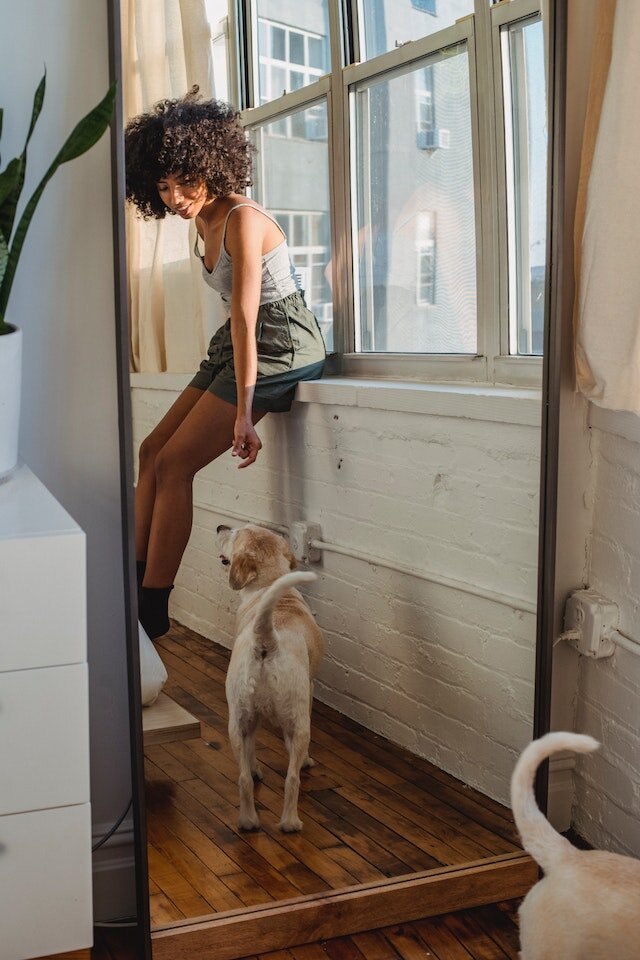How long can a dog hold its urine? These tips will shock you
I am sure many people would be asking, “How long can a dog hold its urine?” Well, you are in luck today, because I am going to provide you with the necessary information you need on this topic and more.
How long can a dog hold its urine?
The amount of time a dog can hold its urine depends on various factors, such as the dog’s age, size, overall health, and many other factors that will be explained in a bit.
Do you know how long a dog can hold its urine? Generally, an adult dog can hold its urine for around 4–8 hours, but this can vary greatly depending on the individual dog. Factors such as stress, anxiety, or a urinary tract infection can also affect a dog’s ability to hold its urine.
It is important to provide regular opportunities for a dog to urinate and to monitor for signs of urinary incontinence or difficulty holding urine.
Read also>> My dog ate soap: what do i do?
Factors affecting how long a dog can hold its urine
Below are some of the factors that can influence how long a dog can hold its pee.
Bladder size
Dogs with smaller bladders, like puppies, may not be able to hold their urine for as long as those with larger bladders.
Age
Another factor that can influence how long a dog can hold its urine is age. Puppies and older dogs may have more difficulty holding their urine for long periods of time. For instance:
- Dogs under 6 months may find it difficult to hold their urine. What you should do in this case is always take them out every 30 to 45 minutes to urinate.
- Dogs between 6 and 12 months old can hold their urine for 2–6 hours.
- Dogs between 1 and 6 years old can hold their urine for 7 to 12 hours.
- Dogs between 7 and 11 years old can hold their urine for 4-6 hours.
- Finally, dogs older than 12 years can hold their urine for 2-4 hours.
Health issues
Dogs with urinary tract infections or other urinary health issues may have difficulty holding their urine.
Hormonal imbalances
Dogs with certain hormonal imbalances, such as diabetes, may have difficulty controlling their bladder.
Training
Dogs that have been trained to hold their urine for longer periods of time may be able to do so more effectively than untrained dogs.
Hydration
Dogs that are well-hydrated may be able to hold their urine for a longer time than those that are dehydrated.
Stress
Dogs that are stressed may have difficulty holding their urine, as stress can affect the bladder and urinary muscles.
Diet
Certain foods and supplements can affect the dog’s bladder and urinary tract, affecting the dog’s ability to hold its urine.
To ensure your dogs don’t have any diet issues causing them to hold their urine longer than necessary, we recommend getting Royal Canin dog foods. They produce the best dog food, rich in a balanced diet.
You can also check out these best-selling dog supplements and vitamins.
Urinary Incontinence
Some dogs may have a medical condition known as urinary incontinence, which causes them to lose control of their bladder.
Medications
Certain medications can affect the dog’s bladder and urinary tract, affecting the dog’s ability to hold its urine.
Read also>> Why does my dog always lay on me?
What happens if my dog holds its pee too long?
Whoever adopts a dog should also be ready to meet its needs for healthy living. For this reason, if you notice that your dog is having difficulties urinating or holding urine longer than necessary, this could be a sign of a problem that affects its urinary system or even a psychological issue.
If a dog holds its pee for too long, it can lead to a urinary tract infection or bladder stones.
It can also cause the bladder to stretch and lose muscle tone, making it more difficult for the dog to hold its urine in the future.
As we said before, it’s important to provide your dog with regular opportunities to relieve itself and to not limit access to water.
If you notice any signs of discomfort or distress, it’s best to consult with your veterinarian.
My dog is not urinating; can we tie this condition to psychological issues?
Yes, it is one of the possible causes. Anxiety and fear can cause the dogs to hold their urine. For example, if the dog is waiting for a walk that it’s already used to or if it does not have a suitable place to urinate in the house, this can generate anxiety in the dog.
Psychological issues in dogs can cause a variety of behavioral problems, including issues with elimination (urination or defecation).
If you suspect that your dog may be experiencing psychological issues that are causing elimination problems, it’s important to consult with a veterinarian or a professional animal behaviorist to develop a treatment plan.
How common are urinary tract infections in dogs?
Very common. Dogs that do not have a balanced diet or that eat foods that are not recommended for dogs are more likely to have urinary tract problems, such as stones.
Read also>> Why does my dog pull clothes off the line? See reasons and solutions
Can teaching the dog how to use the bathroom help to avoid the problem of holding urine for too long?
Yes, the more adapted the dog is to use the bathroom, the greater the chances that it will be more independent when urinating and not depend only on walks or the owner for this.
It is worth noting that, for the proper functioning of the organism, giving your dogs a balanced diet and making sure they are adequately hydrated will improve the quality of their lives and be beneficial for their renal function.
This is some of the important information we have for you about your dog’s urinary system. Remember that in order to have an accurate diagnosis in cases of dogs that are not urinating, the best solution is to seek advice from a veterinarian.
I hope the question, “How long can a dog hold its urine?” has been answered. If you have something to add, use the comment section, and please share the article.







